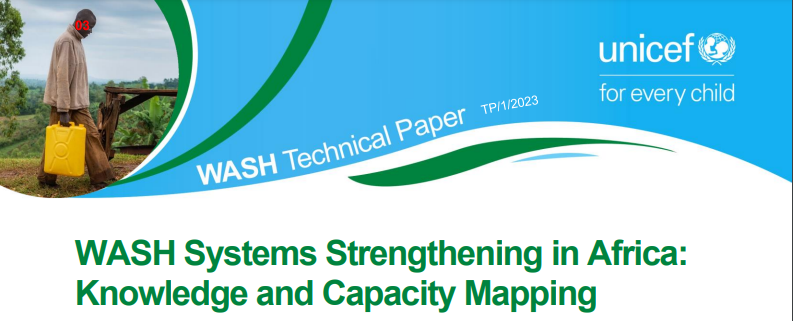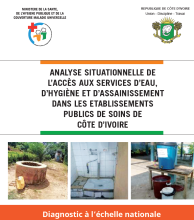Technical Paper: WASH Systems Strengthening in Africa: Knowledge and Capacity Mapping

Strengthening water, sanitation and hygiene (WASH) systems needs to be at the heart of any initiative aiming to advance the achievement of Sustainable Development Goal 6 – ensuring availability and sustainable management of water and sanitation for all. To reinforce national WASH systems strengthening efforts in countries, UNICEF, IRC and Water For People launched a Partnership for WASH Systems in Africa in April 2021 that aims to support the implementation of the Accelerating Sanitation and Water for All Programme (ASWA), funded by the Netherlands’ Directorate-General for International Cooperation (DGIS). In 2021-22, under the partnership, a mapping exercise was undertaken to understand knowledge management and training practices related to national WASH systems strengthening in 19 UNICEF programme country offices1 and a limited number of sector partner operations in Africa.
The findings were drawn from a desk review and an online survey. Overall, a lack of documentation and evidence was noted around the key building blocks of WASH systems, covering planning, monitoring and learning, and sector financing. Other gaps were noted around sustainability of WASH services, climate resilience and linkages between WASH and nutrition.
Application of knowledge products and the use of knowledge gained from trainings are mostly related to advocating for strengthening WASH systems and the core sector building blocks at the national and subnational level and prioritizing funding for WASH systems. In all countries, the main audiences with which knowledge is typically shared are immediate sector colleagues and partners.
In most countries, there are enough platforms, events and knowledge hubs to help improve knowledge sharing with key audiences. However, the dissemination of evidence and knowledge products is often not streamlined or does not happen systematically for collective action.
For Knowledge Management (KM) to be prioritized, it is key that national governments and stakeholders realize that documentation, sharing and learning are critical to inform planning and decision-making around WASH programming at all levels. This requires a broader understanding of KM as a crucial driver of systems change among national advocates of WASH systems.




